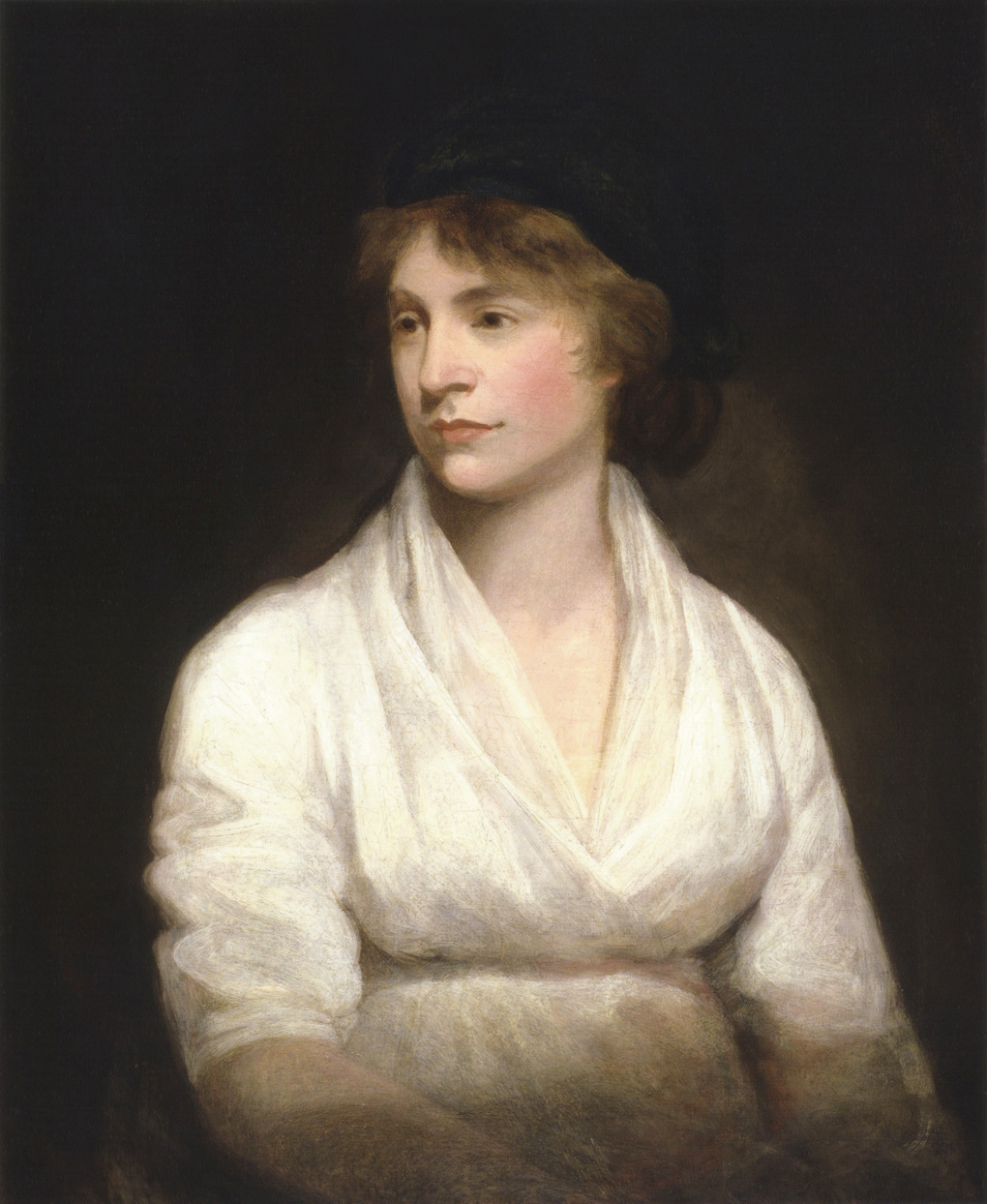Would you like to be viewed as merely possessions of your spouse? Would you like to always be enclosed at home and refrained from pursuing your dreams? Would you like your voice to not carry any value in society? If your answers to these questions are a resolute no, imagine how horribly women had been historically treated before the feminist movement became widespread. Although Victoria Woodhull became the first woman to run for president in 1872, it was almost 50 years later when the 19th amendment was finally enacted, franchising women in the United States the right to vote during presidential elections. It was not until 1983 when Columbia University, a highly prestigious institution, started admitting women. These and many other achievements were the results of the hard work of many courageous feminists. But among those who had fought for gender equality, Mary Wollstonecraft stands out as, inarguably, the most influential feminist and philosopher of the Enlightenment period.
Mary Wollstonecraft, often referred to as the “Mother of Feminism,” is best-known for her advocacy for women’s rights. In her book “A Vindication of the Rights of Women,” she argued for women to be regarded as full human beings and their access to education. She explained that doing so would benefit society as a whole because if women were not educated, they could not become suitable companions for men, which would impede humankind from advancing. Contrasting to the prevailing opinion on women, she proposed that women were not inferior to men and should be granted equal rights to live their lives in the way that they found meaningful. Her works proved that she held enlightened ideas that went beyond her time, offering a different perspective on women, and was bold enough to publicly express them. Moreover, even though her “A Vindication of the Rights of Women” stirred controversy in both England and France at the time, from a positive standpoint, it had also shed light on gender inequality by making it the center of discourse, laying the stepping stones to eradicate it.
Considering that women, as human beings, share the same rights as men, Mary Wollstonecraft further proclaimed that they must also have the same responsibilities that men have. This principle is being implemented nowadays as shown by the fact that men, for instance, are no longer the only breadwinners of the family and helps solidify her claim for the equality of all genders because it would be unfair for men if women were to have fewer responsibilities but the same rights as them. She believed that people must change their point of view on women and promote the education of women for the betterment of society and emphasized the importance of self-discipline, hard work, and principled morality in people and how these components play a crucial role in enhancing progress in society. Furthermore, she stated that women must fulfill their responsibilities as mothers in order to be seen as independent citizens of society. The care children receive from their mothers can affect their mindsets and behaviors, so the upbringings of children will impact future generations and the future of society.
Since she opted for equal human rights, Mary Wollstonecraft opposed monarchy and hereditary privileges because they favored certain groups of people over others, hindering those who were underprivileged from flourishing. Abolishing these institutions would thus lead to a more equitable society. She was a fervent supporter of the Republican form of government. In simple terms, republicanism stresses liberty and natural human rights as central values and the responsibilities of citizens to work for the common good of the community. Her political views indicated that she strongly believed in liberty and had many ideals revolving around that concept. Her interpretation of freedom continues to influence modern society as evidenced by the numerous protests for the abolition of racism, government corruption, and gender discrimination that had occured over the past few years.
Mary Wollstonecraft’s philosophy on human rights and freedom impacted everyone, particularly women. Thanks to her, women today can enjoy the freedom to choose their careers and project their opinions. Hence, she can be considered one of the most enlightened philosophers of all time and an important feminist writer, and her beliefs have impacted the rights of women and their social status as well as the responsibilities of individuals in society.
